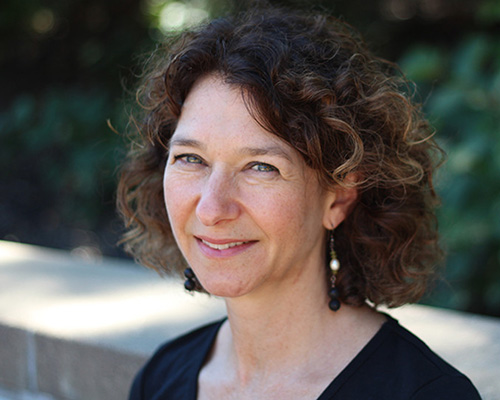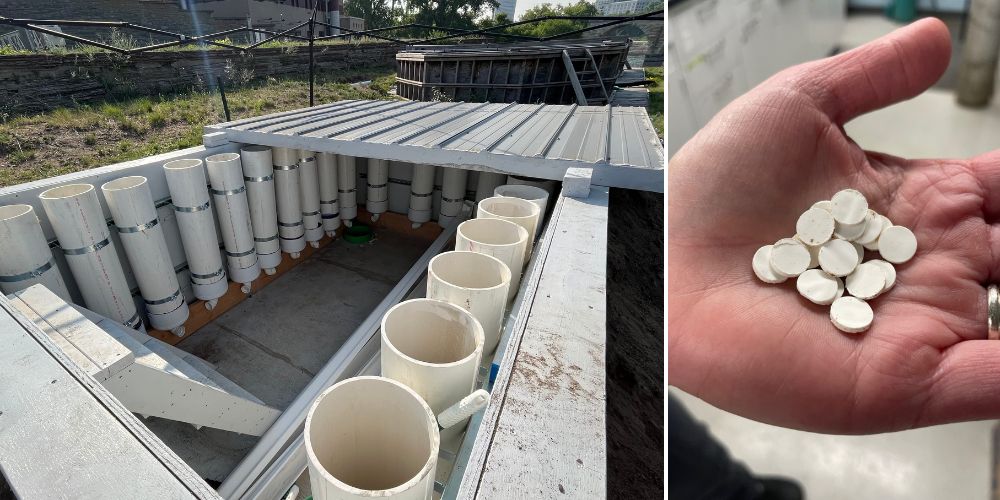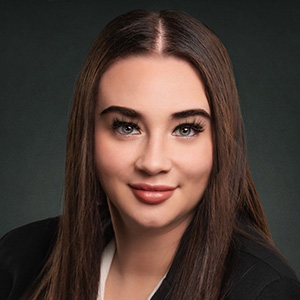An academic–industry partnership made possible by Halo
Environmental engineer Paige Novak grew up immersed in academia. From a young age, her father, a university professor, helped to spark her childhood fascination through discovery and research. This love for science solidified in high school when Novak heard a radio segment about using oil-eating bacteria to clean up spills in the Gulf of Mexico.
Reflecting on that moment, she recalled, “It just, I don't know, it clicked.”

Little did she know at the time, this segment would propel her desire to be a professor and stimulate a lifelong passion for environmental engineering. Novak went on to earn her Ph.D. at the University of Iowa and become a professor at the University of Minnesota, where she is currently the department head and an endowed chair in environmental engineering. Her lab studies biologically based remediation systems and uses microorganisms to treat wastewater.
A few years ago, Novak received an email from a colleague recommending that she check out Halo, a free research and development partnering platform that helps scientific innovators meet new partners, get funded and advance their research. Novak browsed the site and came across a project call from Oldcastle Infrastructure, a company that develops solutions for pipes, precast, storm water, enclosures and buildings. Oldcastle was looking for better ways to remove nitrogen from stormwater runoff at construction sites.
The proposal form was short, so Novak decided to apply.
“The proposal honestly took me maybe half an hour to do,” she recalled, “and it seemed like I may as well give it a shot.”
Novak proposed testing a nitrogen-removal system she had previously co-developed with a colleague to treat wastewater. Her solution incorporates porous plastic pellets coated with zeolite minerals that absorb nitrogen compounds; bacteria then feast on the captured nitrogen.
Oldcastle was willing to offer successful applicants $15,000 for the experiment, which appealed to Novak.
“I knew the system worked in wastewater, but I really wasn’t sure if it would work in stormwater at all,” she said. “I felt comfortable potentially wasting $15,000, but I didn’t feel comfortable wasting $75,000 if it didn’t work.”
After submitting her proposal, Oldcastle contacted her and named her a finalist for the project. In a follow-up Zoom meeting, she presented a few proof-of-concept options.
Novak already considered herself to be in a lucky position because she had a graduate student working on the wastewater project. Oldcastle agreed to have her run the experiment, so she used the money to hire an undergraduate student and purchase supplies for the experiments.
With promising early results, Oldcastle increased funding more than tenfold over two years to scale up the research on stormwater treatment. Now Novak is collaborating with a stormwater expert to run field tests of the system at an outdoor laboratory along the Mississippi River near the University of Minnesota’s campus.
The team built a large containment unit housing multiple columns filled with the plastic pellets to test performance under more real-world conditions. The early tests were successful enough that Oldcastle has already filed an initial patent application listing Novak and her colleague as inventors on the potential stormwater treatment system.

The project still has another year to run, but Novak is optimistic about the solution’s real-world potential. “If it works in a cold climate, that means it’ll probably work even better in an Atlanta-type climate where Oldcastle operates,” she said.
Novak credits Halo’s platform for sparking this collaboration that otherwise may never have occurred. According to Mark Sweeney, product manager for Oldcastle’s Stormwater Green Infrastructure Department, Halo enabled the company to pinpoint experts like Novak.
“Halo is a great way to connect industry with researchers that we otherwise would have a hard time reaching,” Sweeney said. “It was really validating to find all these scientists interested in what we're doing. We just didn't know there were so many out there.”
ASBMB and Halo
The American Society for Biochemistry and Molecular Biology has teamed up with Halo to provide ASBMB members industry partnership opportunities. Each month, ASBMB Today will publish fresh requests for assistance from companies seeking specific expertise and technologies, courtesy of Halo. See the opportunities for February 2024.
Enjoy reading ASBMB Today?
Become a member to receive the print edition four times a year and the digital edition monthly.
Learn moreFeatured jobs
from the ASBMB career center
Get the latest from ASBMB Today
Enter your email address, and we’ll send you a weekly email with recent articles, interviews and more.
Latest in Careers
Careers highlights or most popular articles

Upcoming opportunities
ASBMB's PROLAB award helps graduate students and postdoctoral fellows spend up to six months in U.S. or Canadian labs.

From humble beginnings to unlocking lysosomal secrets
Monther Abu–Remaileh will receive the ASBMB’s 2026 Walter A. Shaw Young Investigator Award in Lipid Research at the ASBMB Annual Meeting, March 7-10 in Washington, D.C.

Chemistry meets biology to thwart parasites
Margaret Phillips will receive the Alice and C. C. Wang Award in Molecular Parasitology at the ASBMB Annual Meeting, March 7-10 in Washington, D.C.

Decoding how bacteria flip host’s molecular switches
Kim Orth will receive the Earl and Thressa Stadtman Distinguished Scientists Award at the ASBMB Annual Meeting, March 7–10, just outside of Washington, D.C.

Defining JNKs: Targets for drug discovery
Roger Davis will receive the Bert and Natalie Vallee Award in Biomedical Science at the ASBMB Annual Meeting, March 7–10, just outside of Washington, D.C.

Upcoming opportunities
No matter where you are in your career and what future path you aspire to, everyone needs leadership skills. Join ASBMB for practical strategies for building and practicing leadership skills.

